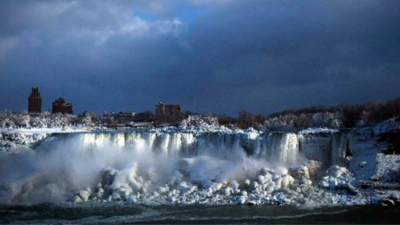Police and protesters clashed in southwest China in reaction to demonstrations against plans to partially destroy a mosque constructed in the fourteenth century. Violence was reported on Saturday, as a response to the government’s plans to partially destroy the Najiaying mosque in Nagu, a town in the Yunnan province.
A court in 2020 determined that the mosque’s most recent additions, including a domed roof and minarets, were unlawful and should be taken down. However, locals in Nagu, which is home to the Hui ethnic community, a mostly Muslim minority, complained when the demolition work started over the weekend, temporarily halting the action.
The Najiaying Mosque, a prominent landmark in Nagu, was recently extended with a new domed roof and many additional minarets.
Videos released on social media showed police grappling with hundreds of demonstrators outside the mosque while wearing riot shields and safety gear. Stones and chairs were also thrown by the people. There have reportedly been several arrests as well. Furthermore, a deadline has been set for the protesters to surrender.
The police could not demolish the illegal construction of the mosque due to fierce opposition by the Muslims. A huge crowd of policemen and Muslims can be seen outside the mosque in videos that have surfaced on social media. A fight broke out between the police and Muslims during this and stones were pelted on the cops who attempted to enter the mosque.
In a statement released on Sunday, the authorities in Tonghai County where Nagu is situated called on protestors to turn themselves in by June 6. “Those who voluntarily turn themselves in and truthfully confess the facts of violations and crimes may be given a lighter or mitigated punishment,” the notice read. Police described the occurrence as “a serious obstruction of social management order” and instructed people to “actively report” demonstrators.
The Hui, one of 56 designated ethnic groups by Beijing, are mainly Sunni Muslims. Approximately 700,000 of China’s 10 million Hui Muslims reside in Yunnan, in the southwest of the country.
In 2018, the communist government of the country wanted to demolish a mosque of Hui Muslims located in Ningxia, but after the protest by the Muslims, the government calmed down for a few days. It was eventually transformed into a Chinese pagoda by destroying the minarets and domes. Three mosques in Yunnan were shut down in the same year for giving what authorities believed to be “illegal religious education.”
A similar instance occurred in October 2021 when the government demolished the Dongguan Mosque in Jining, a city in northwest China. The green domes of this 700-year-old historic mosque were razed.
President Xi Jinping committed to further the “Sinicisation of religion” in 2021, which involves modifying religious practises to better reflect Chinese culture and society.
China is officially an atheist country and the government claims that it allows religious freedom. However, analysts point out that there has lately been an increased campaign against organised religion.
Since 2014, the Chinese government has engaged in severe violations of human rights against the Uyghur Muslims residing in Xinjiang, including forced sterilisation and compelled labour, which have been compared to acts of genocide. According to academic estimates, since 2017, at least a million Uyghurs have been unlawfully jailed in internment camps in Xinjiang.
Chinese government representatives maintain that these camps, established under the leadership of Chinese Communist Party (CCP) general secretary President Xi Jinping, were established to ensure adherence to the party’s ideology, suppress separatism, combat terrorism and provide the Uyghurs with vocational training.
The Uyghurs are a Turkic ethnic group with historical ties to Central and East Asia and a shared cultural heritage. They are one of the legally recognised ethnic minorities in China, and the government recognises them as a local minority and as the official inhabitants of Xinjiang.










